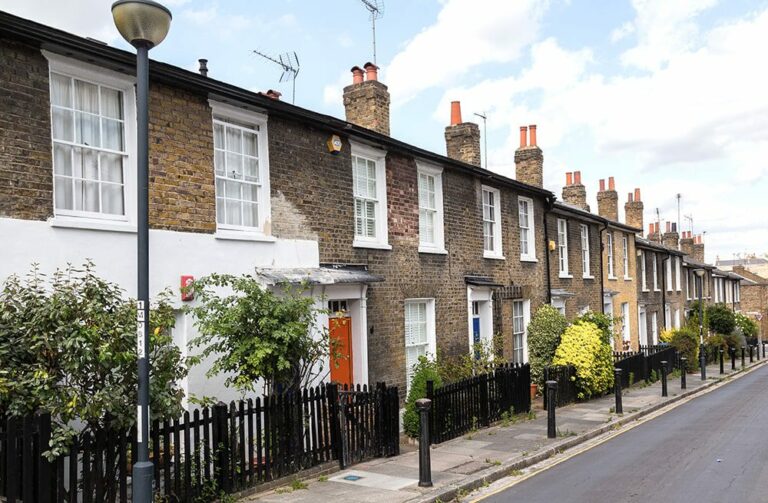Whether you’ve decided to cut down on your buy-to-let portfolio or have plans to sell your current buy-to-let and invest in a new property; or walk away from property investment completely there are a few steps you need to take in order to sell a rental property smoothly. But don’t worry, we’re on hand to make it as easy as possible.
1. Make your mortgage provider aware
If you have a mortgage on your rental property, you will need to inform the mortgage provider of your intentions to sell the property as early as possible. You will need to ask them for a settlement figure or a balance and let them know whether your intentions are to transfer the mortgage to another property or if you plan on settling the outstanding mortgage with the proceeds of the sale.
2. Selling a rental with tenants
If your property is tenanted, you need to tell your tenants at the earliest opportunity that you are selling the property. You may also want to offer them the opportunity to buy the property, as this will save you the hassle of having to find a buyer and removes the issue of serving them notice and losing out on any rent. However, if they are not able to purchase the property or don’t have an interest in buying the property then they may be willing to facilitate viewings or any maintenance to the property.
It’s important to be aware that even if they do agree to facilitate viewings/maintenance, they could renege on this agreement at any time as it could be in breach of their right to quiet enjoyment of their property.
You have a few different avenues that you can explore.
Serve your tenants’ notice
If you’re planning on serving your tenants notice, you will need to refer to the initial tenancy agreement.
The exact procedure will depend on the tenancy agreement and its terms visit the GOV website for further information.
There are two types of agreement (the following only applies to shorthold tenancies):
- ‘periodic’ tenancies – these run week by week or month by month with no fixed end date. They can also arise following the expiry of the fixed term tenancy if it is not renewed for another fixed term
- fixed-term tenancies – these run for a set amount of time
You must follow a set process if your tenants have an assured shorthold tenancy. You can find more information relating to serving notices on the GOV website. It is important to remember that during the Coronavirus (COVID-19) that the usual process may have been altered somewhat. You can view the latest guidance on the .gov website.
Sell your property with tenants in situ
Selling with tenants in situ can be appealing to some landlords as the tenant/s will still have the quiet right to enjoy the property whilst the sale is taking place. It is important to remember that if you are selling with tenants in situ, you will be selling to buy-to-let landlords opposed to placing the property on the open market.
3. Selling a vacant rental property
If you’re selling a property without sitting tenants, you will be putting your property on the open market which could give the property a chance to fetch a higher sale price. It will also give you the flexibility to undertake maintenance in preparation to put the property on the market.
4. Prepare the property for sale
If you’re selling the property, you’ll want to ensure it looks its best so it can fetch the highest possible price. This may become trickier if the property is tenanted.
If this involves redecorating the property whilst someone is living there, then this can be very disruptive for them and you’ll need to think of the best way to do this and take careful consideration. You’ll also need to rely on the goodwill of your tenant when it comes to viewings.
Our top tips:
Keep it clean
This sounds pretty easy, it’s not always the landlord’s fault if the property is untidy as a landlord it’s in your best interest to look after the basics. Your letting agent should be keeping on top of tenants with inspections. especially if viewings are coming thick and fast. You should arrange a general clean of the property before viewings and be sure to notify existing tenants.
If your property is vacant, then many companies offer professional cleaning services for end of tenancies that you could use to get the property looking spick and span.
First impressions do count
Be sure to remove any mess left by pre-existing tenants. You may want to consider asking any existing tenants to make sure entrances, exits and walkways through the property are left clear and clutter free.
Dress your property to impress
Decoration can be subjective, and not everyone will share the same tastes as you. Steer clear of any garish colours and stick to a neutral colour scheme. This will give potential buyers the opportunity to see the property in the best possible light and then giving them the ability to alter the property at a later date.
5. Instruct an estate agent
It may not be a legal requirement to instruct an estate agent to sell your property however many people choose to do so to make things easier. If you do choose to instruct an agent, make sure you compare fees and services that they have to offer before selecting the one for you. easyProperty can sell your property from as little as £795 and is able to provide remote valuations, so there’s no need for unnecessary visits.
6. Hire a solicitor
Once you’ve put your property on the market, it’s time to start getting quotes for a solicitor. Once instructed there will be some initial paperwork that you need to complete, it is beneficial to get this paperwork completed and returned whilst the property is still on the market which will help to speed things up once you do receive an offer.
If you instruct easyProperty as your estate agent, they will refer you to easyConveyancing so you can sell your property in a few simple steps.
7. Arrange viewings
Start arranging viewings, in order to make the viewing process easier and less intrusive if you do have tenants living in the property especially during the current climate you may want to consider initially offering a ‘virtual viewings’; this will help sift out any potential time waisters and leave you with people who are genuinely interested in purchasing the property.
If your potential buyers would like to physically view the property and your property is tenanted, you will need to confirm with the tenants in advance of the viewing to arrange a date and time that works for both parties.
It is important before you start arranging any viewings that you read the government guidance in regards to home moving during Coronavirus (COVID-19).
8. Negotiate offers and contracts
Once you have received an offer on your property, you’ll need to decide whether to accept it or negotiate it. Your estate agent will be able to advise you as to whether the offer is worth accepting.
You’ll also want to take into consideration the buyer’s position and enquire as to whether they have a mortgage agreement in principle if they are paying with a mortgage and whether they are part of a chain. It is also worth discussing timescales to establish how long things are going to take and if you’re aiming for a similar time frame.
If you are happy to accept the offer you will need to notify your estate agent who will pass on the news to the buyer.
9. Agree on a completion date and exchange contracts
Upon accepting an offer your buyer will need to instruct their own solicitor who will begin to draw up legal documents and carry out requests from your solicitor.
The memorandum of sale will then be sent to yourself and your buyer to sign. As soon as any outstanding queries and inquiries have been dealt with and a date of completion has been arranged and agreed on the contracts will be exchanged. This is at the point in which the sale of the property becomes legally binding.
10. Capital Gains Tax when selling a rental property
Buy-to-let properties are subject to Capital Gains Tax (CGT). Capital Gains Tax is a tax on the profit when you sell an asset that has increased in value. If you pay higher rate Income Tax, then you’ll pay:
- 28% on your gains from residential property
- 20% on your gains from other chargeable assets
If you pay basic rate Income Tax, then the rate you pay depends on the size of your gain, your taxable income and whether your gain is from residential property or other assets. For more information on Capital Gains Tax and to work out your taxable income.
If you’re selling a rental property, there’s lots to consider we hope this easy guide has made things that little bit easier and provides you with answers to your questions so you can make sure you know the ropes when the time to sell comes. If you’ve got any questions why not get in touch? customerservice@easyproperty.com






